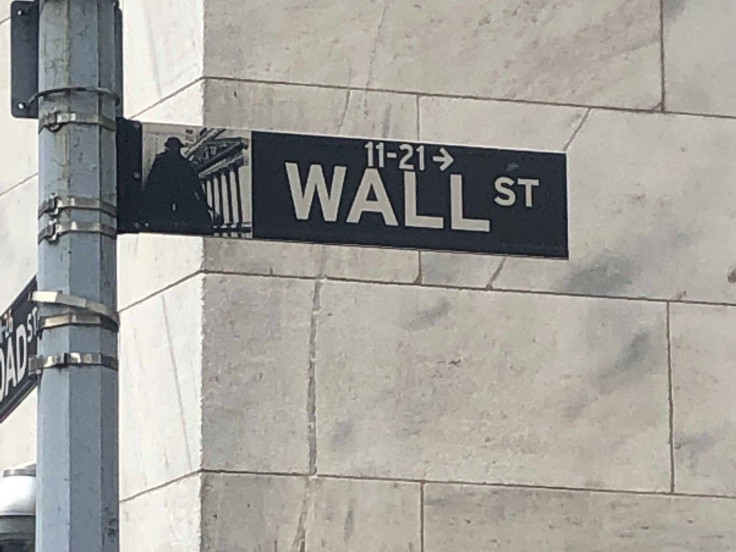Thursday’s Stock Market Close: US Equities Recover From Early Losses As Bank Stocks Rise, Oil Jumps

KEY POINTS
- Big bank stocks like Bank of America, JPMorgan Chase and Wells Fargo led overall market higher
- WTI futures surged more than 8%
- Almost 3 million people filed for unemployment benefits last week
U.S. stocks rose on Thursday, rebounding from early losses as strength in bank shares offset grim employment data.
The Dow Jones Industrial Average gained 377.37 points to 23,625.34, while the S&P 500 rose 32.5 points to 2,852.50 and the Nasdaq Composite Index jumped 80.55 points to 8,943.72.
Big bank stocks like Bank of America (BAC), JPMorgan Chase (JPM) and Wells Fargo (WFC) paced the overall market higher.
Thursday’s volume on the New York Stock Exchange totaled 4.95 billion shares with 1,514 issues advancing, 15 setting new highs, and 1,457 declining, with 104 setting new lows .
Active movers were led by General Electric Co. (GE), Ford Motor Co. (F) and Delta Airlines (DAL).
“This market is still in this muddle-through zone where you’re trying to understand how difficult will this economic environment be or is there an all-clear coming soon,” said Rob Haworth, senior investment strategist at U.S. Bank Wealth Management.
The Labor Department said on Thursday that 2.981 million people filed new claims for unemployment insurance last week, bringing the total number during the coronavirus pandemic to almost 36.5 million.
E.J. Dionne of the Brookings Institution tweeted: “Nearly 3 million new jobless claims underscore [Federal Reserve Chairman Jerome Powell’s] point: The choice is to act forcefully now or to sink into long-term stagnation. [Depression-era president] Herbert Hoover’s travails show which is the better path.”
Republicans rejected a $3 trillion stimulus package drafted by House Democrats to support the U.S. economy, but a compromise deal may emerge later.
Dr. Soumya Swaminathan, the World Health Organization’s chief scientist, warned it may take five years to control the spread of coronavirus.
Thus far, more than 4.3 million people have been infected around the world, and nearly 300,000 have died.
Zach Pandl, Goldman Sachs’ co-head of global foreign exchange, rates and emerging markets strategy, said the Federal Reserve may have to consider negative interest rates if the U.S. sees a second wave of coronavirus cases. Although he doubted that would be helpful.
“There are a lot of variables in terms of really how the economy opens here. It’s going to be very uneven,” said Gregory Faranello, head of U.S. rates trading at AmeriVet Securities. “From a capital perspective and a leverage perspective, the Fed can grow the existing programs that they have online.”
Nelson Peltz, CEO of Trian Partners, was more optimistic.
“This [pandemic] is not going to last forever,” he said. “There’re still loads of value in the market because the market is primarily a tech market.”
Overnight in Asia, markets dropped. The Shanghai Composite tumbled 0.96%; Hong Kong’s Hang Seng dropped 1.45%; while Japan’s Nikkei-225 fell 1.74%.
In Europe markets finished lower, as Britain’s FTSE-100 fell 2.75%, while France’s CAC-40 tumbled 1.65% and Germany’s DAX dropped 1.95%.
Crude oil futures jumped 8.9% at $27.54 per barrel, Brent crude slipped 0.03% at $31.12. Gold futures climbed 1.36%.
The euro edged down 0.15% at $1.0801 while the pound sterling slipped 0.07% at $1.2227.
The yield on the 10-year Treasury dropped 4.62% to 0.619% while yield on the 30-year Treasury fell 3.28% to 1.297%.
© Copyright IBTimes 2025. All rights reserved.





















